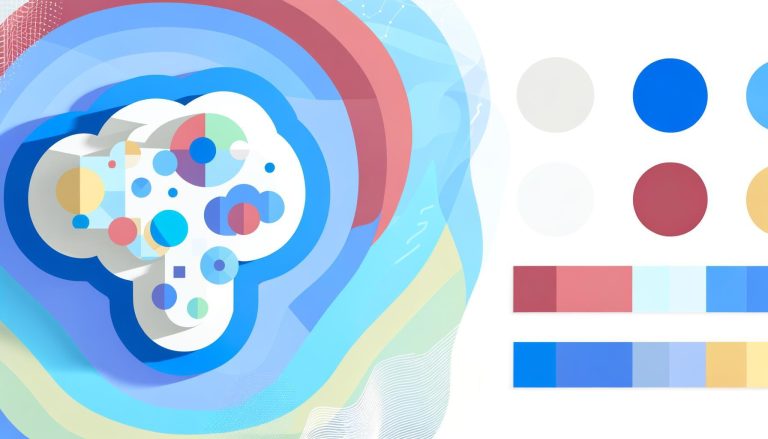In today’s tech-savvy world, video games have become an integral part of many adolescents’ lives. However, excessive gaming can lead to a condition known as gaming disorder. Recognized by the World Health Organization, gaming disorder involves persistent and recurring gaming behavior that leads to significant impairment. The rise of artificial intelligence (AI) offers new avenues for treating gaming disorder in adolescents. But how effective is AI in this area?
Introduction
Gaming disorder is a growing concern for parents, educators, and healthcare providers. With the increasing prevalence of video games, particularly among adolescents, it’s crucial to find effective ways to address this issue. AI presents a promising tool in the arsenal against gaming disorder, offering innovative solutions that can tailor treatments to individual needs. This article explores the impact of AI on treating gaming disorder in adolescents, discussing its benefits, challenges, and practical applications.
The Role of AI in Understanding Gaming Disorder
Personalized Treatment Plans
One of the significant benefits of AI in treating gaming disorder is its ability to create personalized treatment plans. Traditional therapy methods often follow a one-size-fits-all approach, which might not be effective for everyone. AI algorithms can analyze an individual’s gaming habits, psychological profile, and other relevant data to tailor a treatment plan specifically for them. This personalized approach increases the likelihood of successful outcomes.
Monitoring and Feedback Mechanisms
AI can also play a vital role in continuous monitoring and providing feedback. Wearable devices and mobile apps can track gaming time, emotional states, and even physical symptoms like sleep patterns or heart rate. AI can analyze this data in real-time, offering immediate feedback and adjustments to the treatment plan. This continuous loop of monitoring and feedback helps adolescents stay on track and manage their gaming habits more effectively.
Early Detection and Preventive Measures
AI’s predictive analytics capabilities can identify early signs of gaming disorder before it becomes a severe issue. By analyzing behavioral patterns, AI can flag risk factors such as increased screen time, social withdrawal, and changes in sleep patterns. Early detection allows for timely intervention, which is crucial for preventing the disorder from escalating.
Benefits of AI in Treating Gaming Disorder
Enhanced Accessibility
One of the most significant advantages of AI-based solutions is their accessibility. Many adolescents are reluctant to seek traditional therapy due to stigma or logistical challenges. AI-powered apps and online platforms provide a more accessible alternative. They can be used anytime and anywhere, making it easier for adolescents to get the help they need.
Cost-Effectiveness
Traditional therapy can be expensive, and access to qualified therapists might be limited. AI-powered tools offer a cost-effective alternative. These tools can provide high-quality care at a fraction of the cost, making treatment more accessible to a broader audience.
Scalability
AI solutions can be easily scaled to serve a large number of users. This scalability is crucial in addressing the widespread issue of gaming disorder. Traditional therapy methods are limited by the number of qualified professionals available. In contrast, AI can offer consistent and high-quality care to many individuals simultaneously.
Data-Driven Insights
AI can analyze vast amounts of data to provide insights into the effectiveness of various treatment methods. This data-driven approach helps in continuously improving treatment plans and developing new strategies. It also enables healthcare providers to make informed decisions based on real-world data.
Challenges and Ethical Considerations
Data Privacy
One of the primary concerns with AI-based solutions is data privacy. Collecting and analyzing personal data raises ethical and legal questions. Ensuring that data is stored securely and used ethically is crucial for gaining the trust of users and their families.
Algorithmic Bias
AI algorithms are only as good as the data they are trained on. If the training data is biased, the algorithm’s recommendations may also be biased. This bias can result in unfair treatment plans and outcomes. It’s essential to use diverse and unbiased data sets to train AI algorithms.
Lack of Human Touch
While AI can offer many benefits, it lacks the human touch that is often crucial in therapy. Building a therapeutic alliance with a human therapist can be a significant factor in successful treatment. AI-based solutions should be used to complement, not replace, traditional therapy methods.
Practical Tips for Using AI-Based Solutions
Combine with Traditional Therapy
AI solutions are most effective when used in conjunction with traditional therapy. A human therapist can provide the emotional support and personalized care that AI cannot offer. Combining both approaches can lead to better outcomes.
Regular Monitoring
Regular monitoring is crucial for the success of AI-based treatments. Use wearable devices or apps to track progress and make necessary adjustments to the treatment plan. Continuous monitoring helps in identifying any issues early and allows for timely intervention.
Educate and Engage
Educating adolescents and their families about the benefits and limitations of AI-based treatments is essential. Engaging them in the process can increase acceptance and adherence to the treatment plan. Make sure they understand how the technology works and what they can expect from it.
Conclusion
AI holds significant promise in treating gaming disorder in adolescents. Its ability to provide personalized treatment plans, continuous monitoring, and early detection makes it a valuable tool in the fight against this growing issue. However, it’s crucial to address the challenges and ethical considerations to ensure the safe and effective use of AI. Combining AI with traditional therapy methods can offer the best of both worlds, leading to improved outcomes for adolescents struggling with gaming disorder.
As technology continues to evolve, the integration of AI in mental health treatments will become increasingly common. By understanding and utilizing these advancements, we can better support adolescents in achieving a balanced and healthy relationship with gaming.
For those interested in tracking their progress and habits, apps like Zenora offer valuable features such as mood and habit tracking, personalized counseling, and goal setting. These tools can be instrumental in managing gaming behavior and promoting overall well-being.





